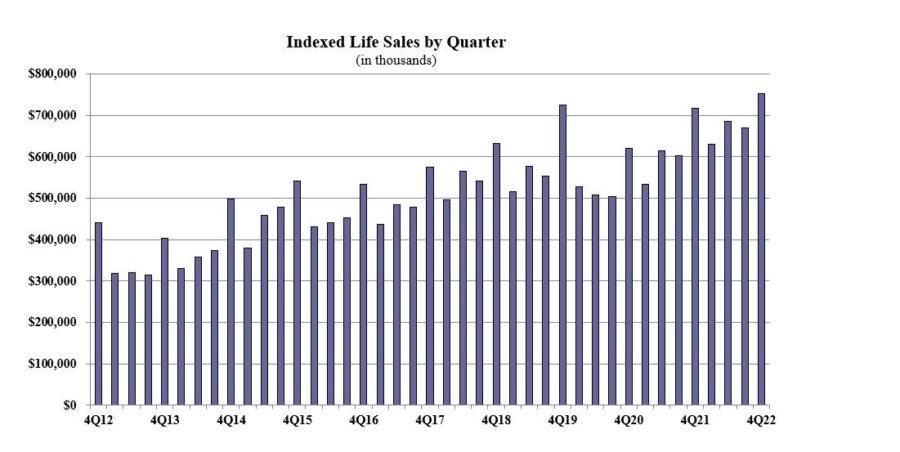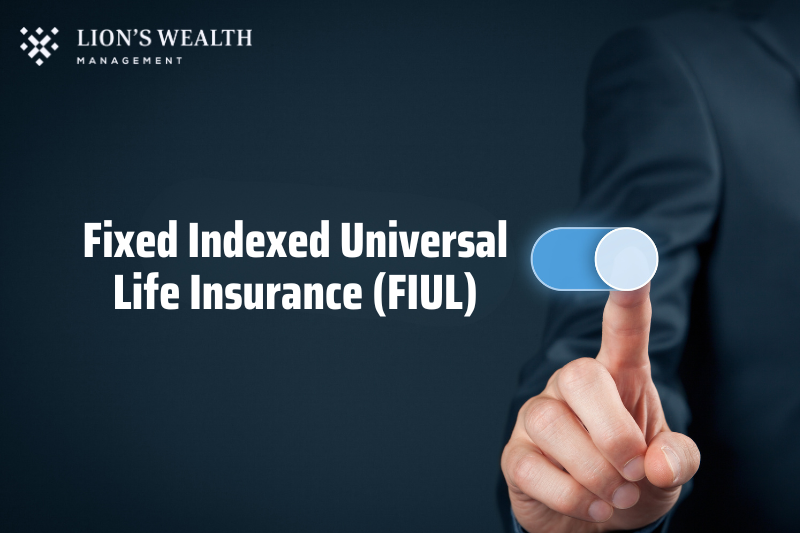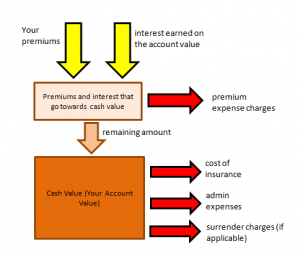All Categories
Featured
Table of Contents
1), commonly in an attempt to defeat their category standards. This is a straw guy debate, and one IUL people love to make. Do they compare the IUL to something like the Vanguard Total Amount Stock Exchange Fund Admiral Shares with no tons, an expense ratio (ER) of 5 basis factors, a turn over ratio of 4.3%, and a phenomenal tax-efficient record of distributions? No, they contrast it to some dreadful proactively handled fund with an 8% load, a 2% ER, an 80% turn over ratio, and an awful document of temporary resources gain distributions.
Mutual funds commonly make annual taxable circulations to fund proprietors, also when the value of their fund has actually dropped in worth. Shared funds not just require income reporting (and the resulting yearly taxes) when the shared fund is rising in value, yet can likewise enforce earnings tax obligations in a year when the fund has dropped in worth.
That's not how common funds function. You can tax-manage the fund, collecting losses and gains in order to decrease taxed circulations to the financiers, yet that isn't in some way going to transform the reported return of the fund. Only Bernie Madoff types can do that. IULs avoid myriad tax catches. The ownership of common funds may call for the shared fund proprietor to pay approximated taxes.

IULs are simple to position to ensure that, at the proprietor's death, the recipient is exempt to either income or estate tax obligations. The same tax obligation decrease strategies do not function nearly as well with shared funds. There are countless, frequently expensive, tax obligation catches linked with the moment purchasing and marketing of common fund shares, traps that do not put on indexed life insurance policy.
Possibilities aren't really high that you're going to undergo the AMT as a result of your shared fund circulations if you aren't without them. The rest of this one is half-truths at finest. While it is real that there is no revenue tax obligation due to your heirs when they inherit the proceeds of your IUL policy, it is likewise real that there is no income tax obligation due to your beneficiaries when they acquire a shared fund in a taxable account from you.
Universal Whole
The government estate tax obligation exemption restriction is over $10 Million for a pair, and expanding yearly with inflation. It's a non-issue for the huge majority of medical professionals, much less the remainder of America. There are much better ways to prevent inheritance tax problems than acquiring financial investments with low returns. Mutual funds might cause income taxes of Social Safety and security advantages.

The growth within the IUL is tax-deferred and might be taken as tax obligation cost-free income via car loans. The plan owner (vs. the shared fund manager) is in control of his/her reportable income, hence enabling them to minimize or perhaps eliminate the taxes of their Social Safety and security benefits. This one is terrific.
Below's another minimal problem. It's real if you get a common fund for say $10 per share prior to the distribution day, and it distributes a $0.50 distribution, you are after that mosting likely to owe tax obligations (possibly 7-10 cents per share) in spite of the reality that you haven't yet had any gains.
In the end, it's really about the after-tax return, not exactly how much you pay in tax obligations. You are going to pay more in tax obligations by utilizing a taxable account than if you get life insurance coverage. You're also most likely going to have more money after paying those taxes. The record-keeping needs for owning mutual funds are considerably extra complicated.
With an IUL, one's records are kept by the insurance coverage business, copies of annual statements are sent by mail to the proprietor, and distributions (if any) are completed and reported at year end. This set is also kind of silly. Certainly you need to keep your tax documents in situation of an audit.
Indexed Universal Life Insurance Complaints
Hardly a reason to buy life insurance. Mutual funds are generally component of a decedent's probated estate.
In enhancement, they go through the hold-ups and expenses of probate. The earnings of the IUL plan, on the various other hand, is constantly a non-probate distribution that passes beyond probate directly to one's named recipients, and is for that reason exempt to one's posthumous creditors, undesirable public disclosure, or comparable hold-ups and costs.
Medicaid disqualification and life time revenue. An IUL can give their owners with a stream of earnings for their entire life time, no matter of exactly how long they live.

This is helpful when arranging one's events, and transforming assets to revenue prior to a nursing home arrest. Mutual funds can not be transformed in a similar manner, and are practically always thought about countable Medicaid possessions. This is one more foolish one promoting that bad people (you know, the ones that need Medicaid, a government program for the bad, to spend for their nursing home) must make use of IUL rather than common funds.
Universal Whole
And life insurance policy looks horrible when compared rather versus a pension. Second, individuals that have money to acquire IUL above and past their pension are mosting likely to need to be awful at managing cash in order to ever receive Medicaid to spend for their retirement home costs.
Chronic and incurable ailment motorcyclist. All policies will enable an owner's very easy access to cash money from their plan, often forgoing any type of surrender charges when such people experience a significant illness, require at-home treatment, or come to be restricted to an assisted living home. Common funds do not offer a similar waiver when contingent deferred sales charges still put on a common fund account whose proprietor requires to market some shares to money the prices of such a remain.
Iul Life Insurance Pros And Cons
Yet you obtain to pay even more for that benefit (motorcyclist) with an insurance policy. What a large amount! Indexed universal life insurance coverage provides survivor benefit to the recipients of the IUL proprietors, and neither the owner neither the recipient can ever lose cash as a result of a down market. Shared funds give no such warranties or fatality benefits of any type of kind.
I definitely do not require one after I get to economic freedom. Do I desire one? On standard, a purchaser of life insurance pays for the true cost of the life insurance advantage, plus the expenses of the policy, plus the profits of the insurance coverage business.
Seguros Universal Insurance
I'm not completely certain why Mr. Morais tossed in the entire "you can not shed money" again below as it was covered rather well in # 1. He just wanted to duplicate the finest selling factor for these things I suppose. Once again, you don't shed nominal bucks, but you can lose actual dollars, as well as face significant possibility cost because of reduced returns.

An indexed global life insurance policy plan proprietor may trade their plan for a totally different policy without activating revenue tax obligations. A mutual fund owner can stagnate funds from one mutual fund firm to an additional without offering his shares at the previous (thus activating a taxed event), and buying brand-new shares at the latter, usually subject to sales charges at both.
While it is true that you can exchange one insurance coverage for another, the factor that people do this is that the very first one is such a terrible plan that also after getting a brand-new one and experiencing the early, negative return years, you'll still appear ahead. If they were marketed the appropriate policy the initial time, they should not have any wish to ever exchange it and undergo the early, adverse return years again.
Latest Posts
Universal Life Brokers
Universal Life Policy Vs Term
Best Guaranteed Universal Life Insurance Companies